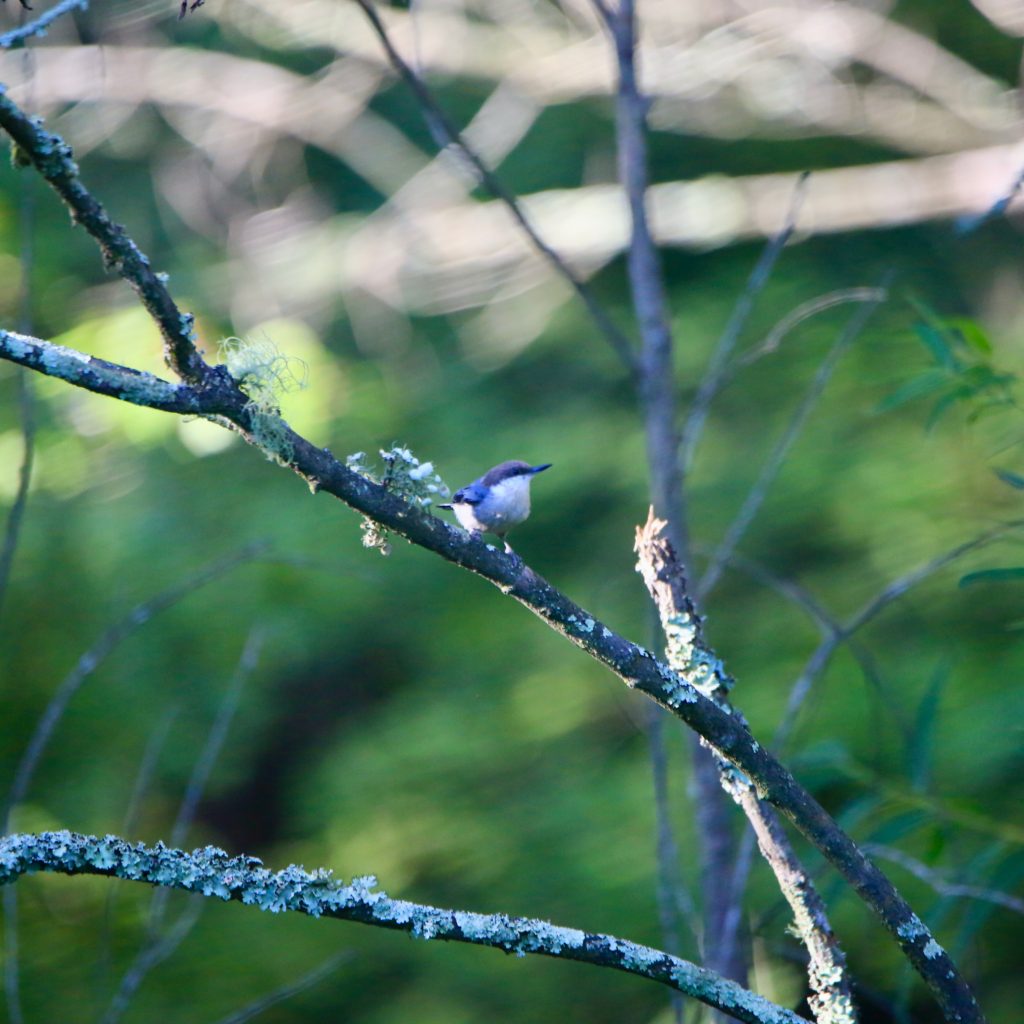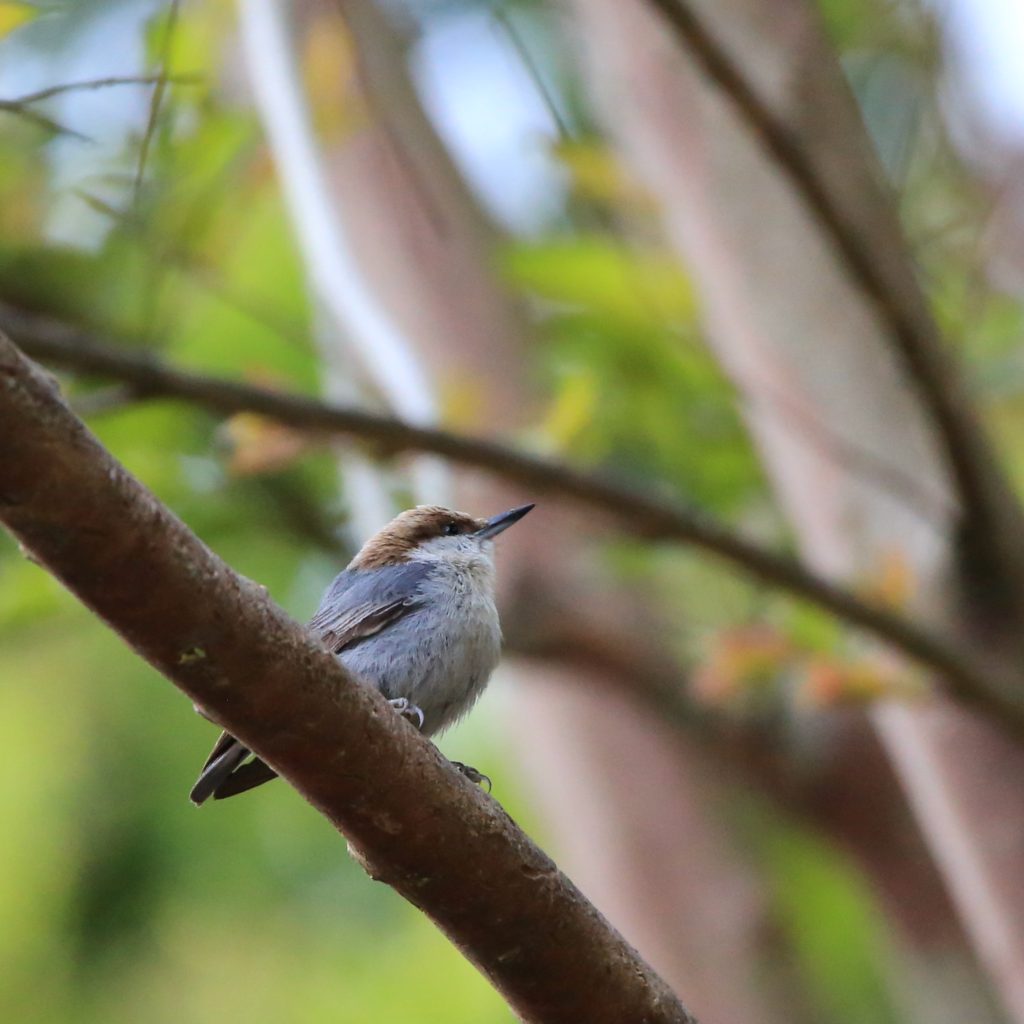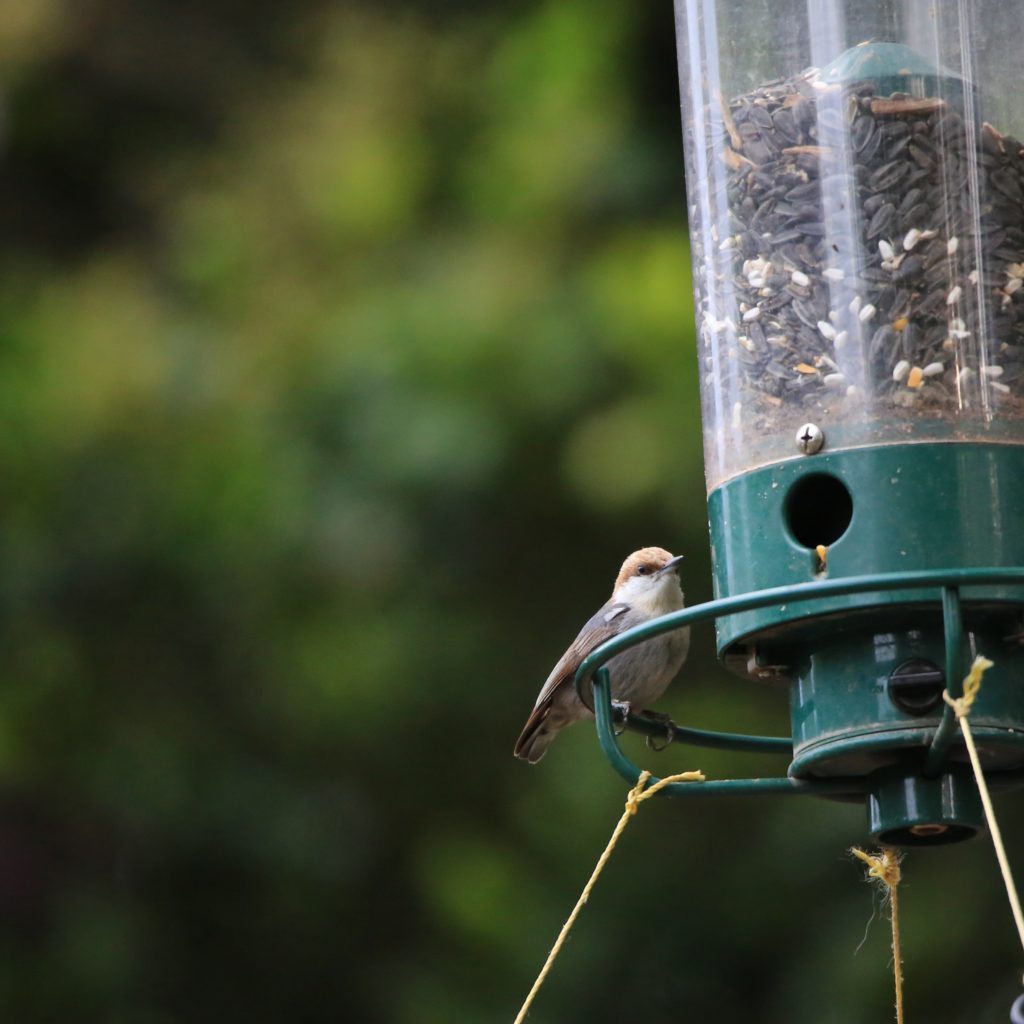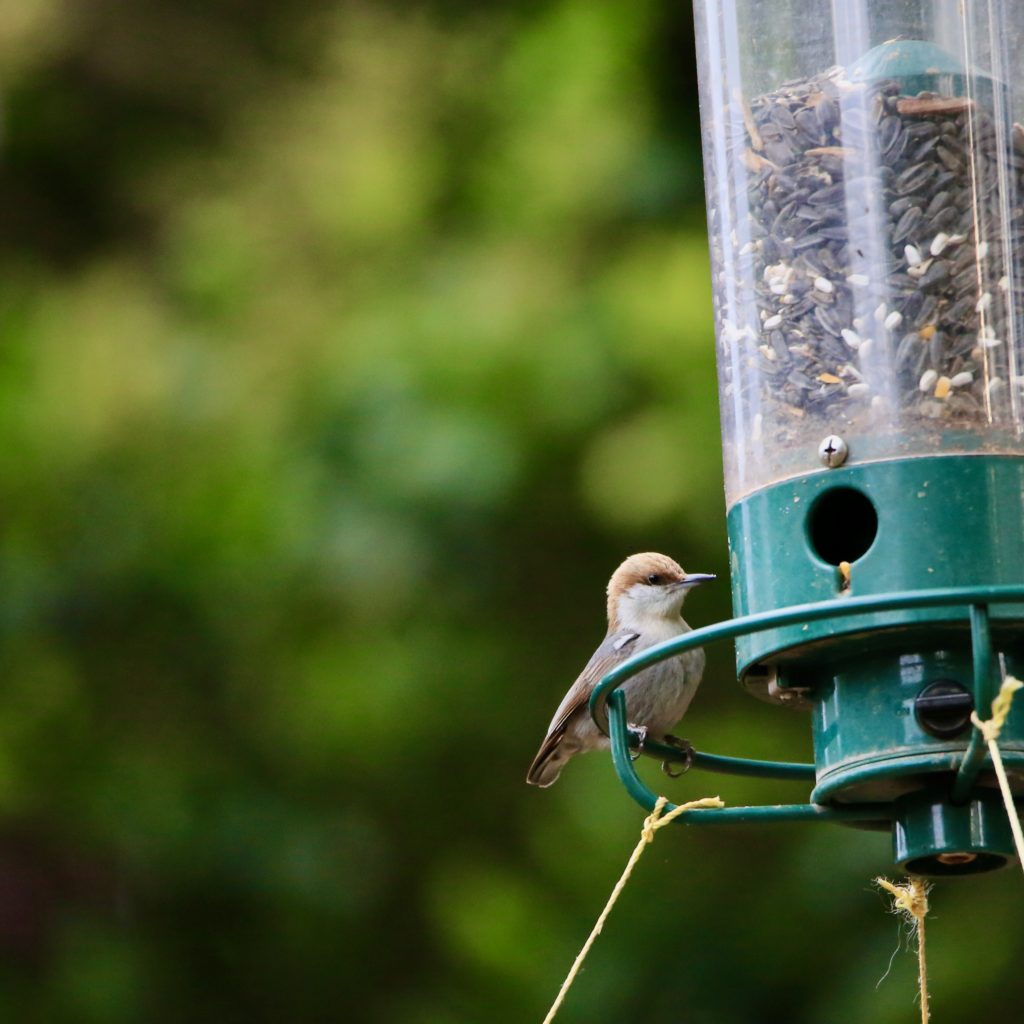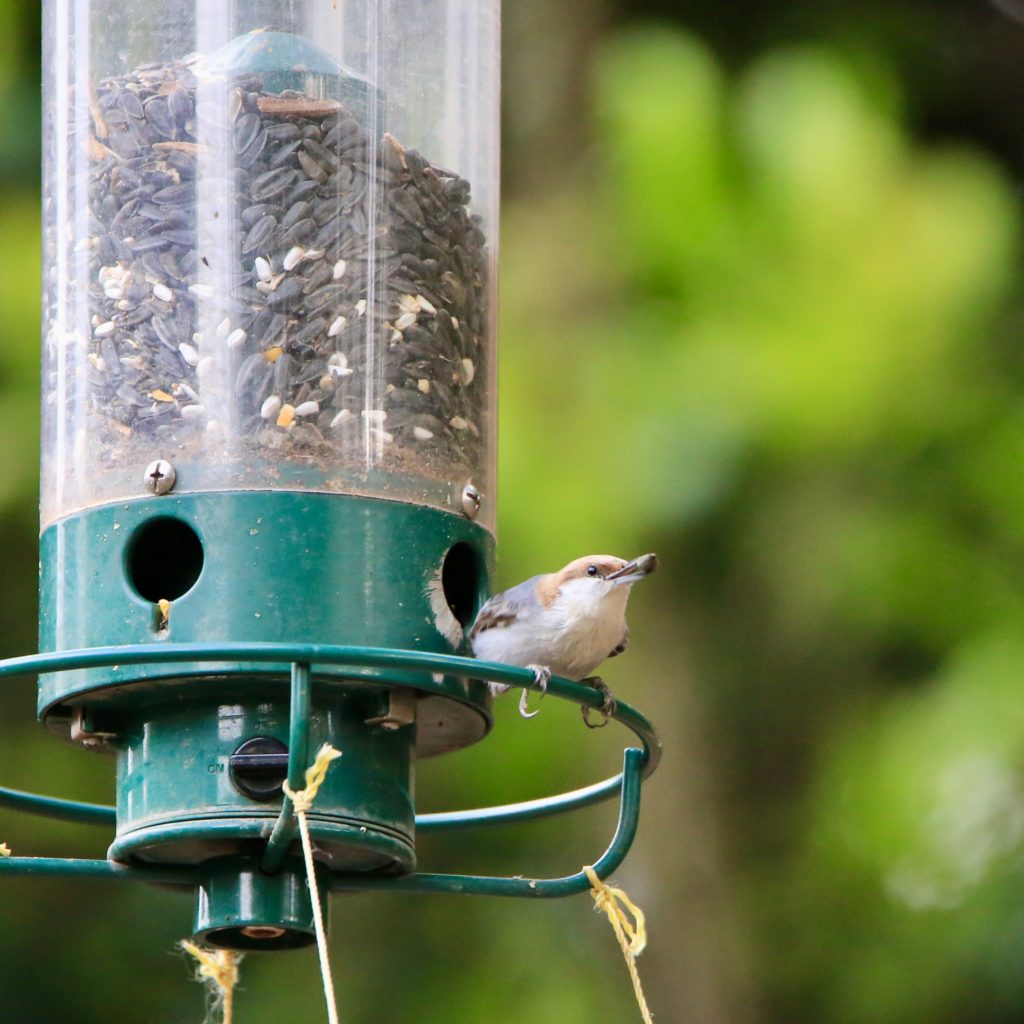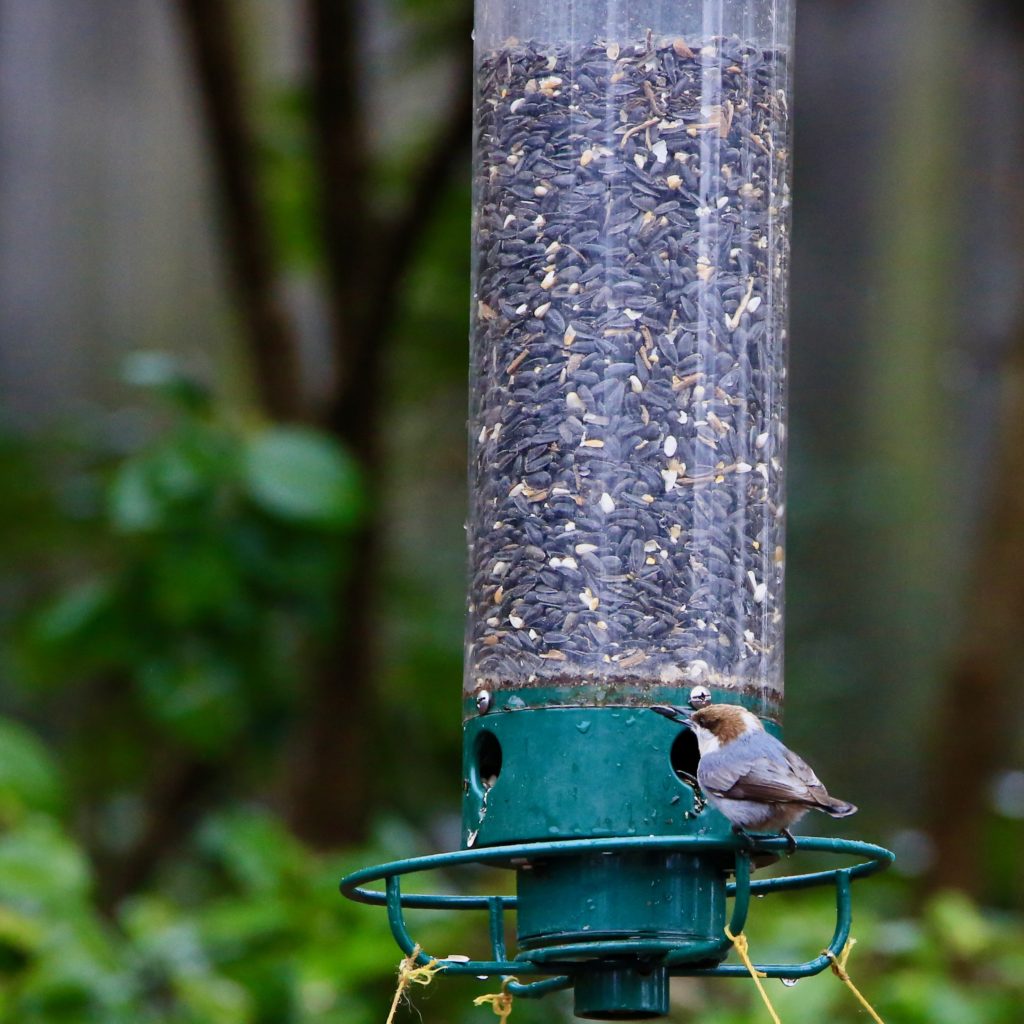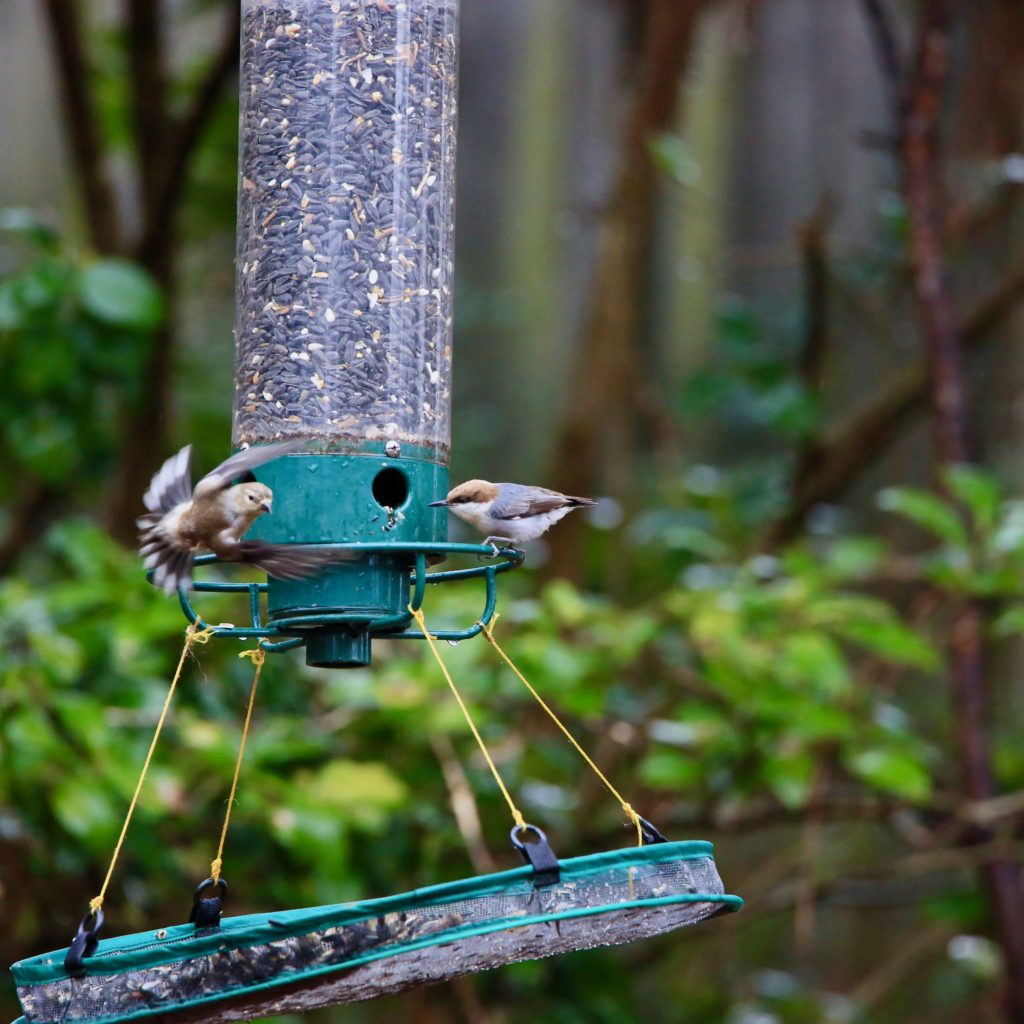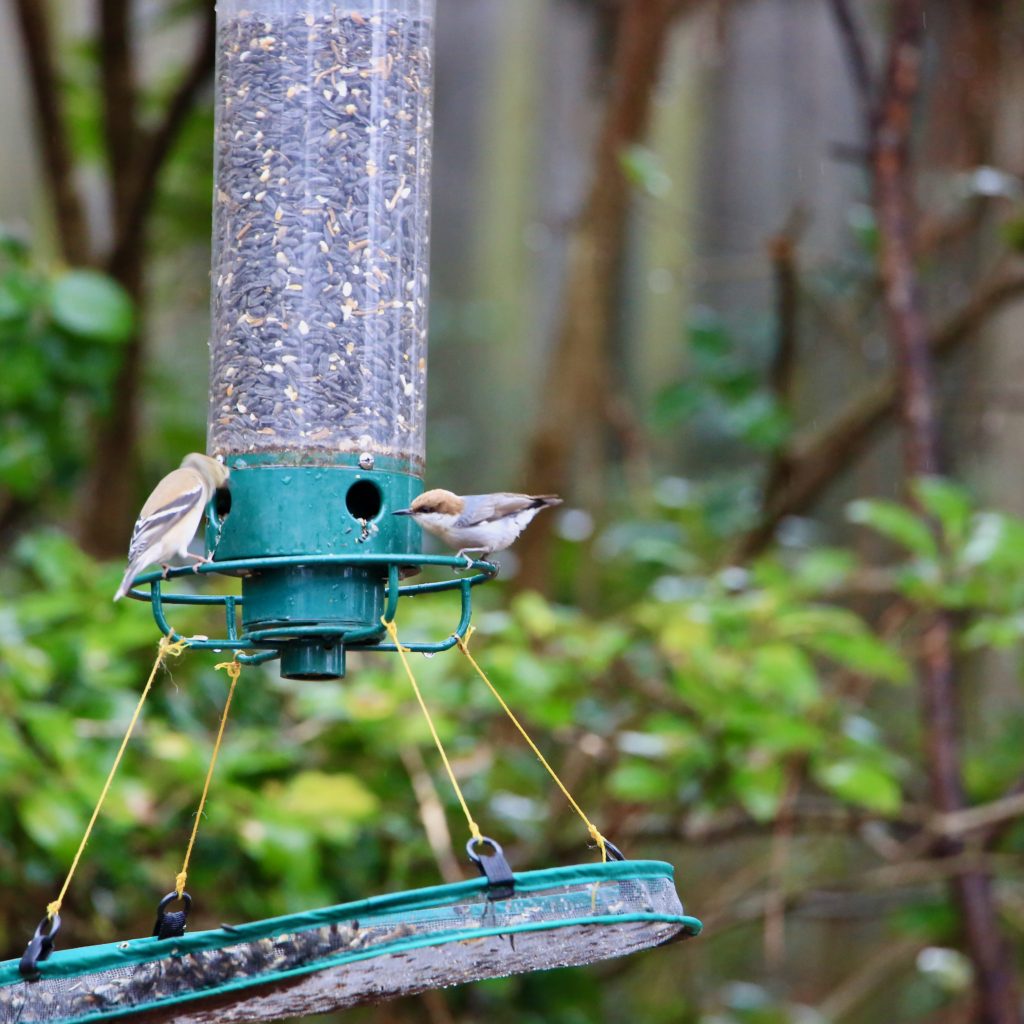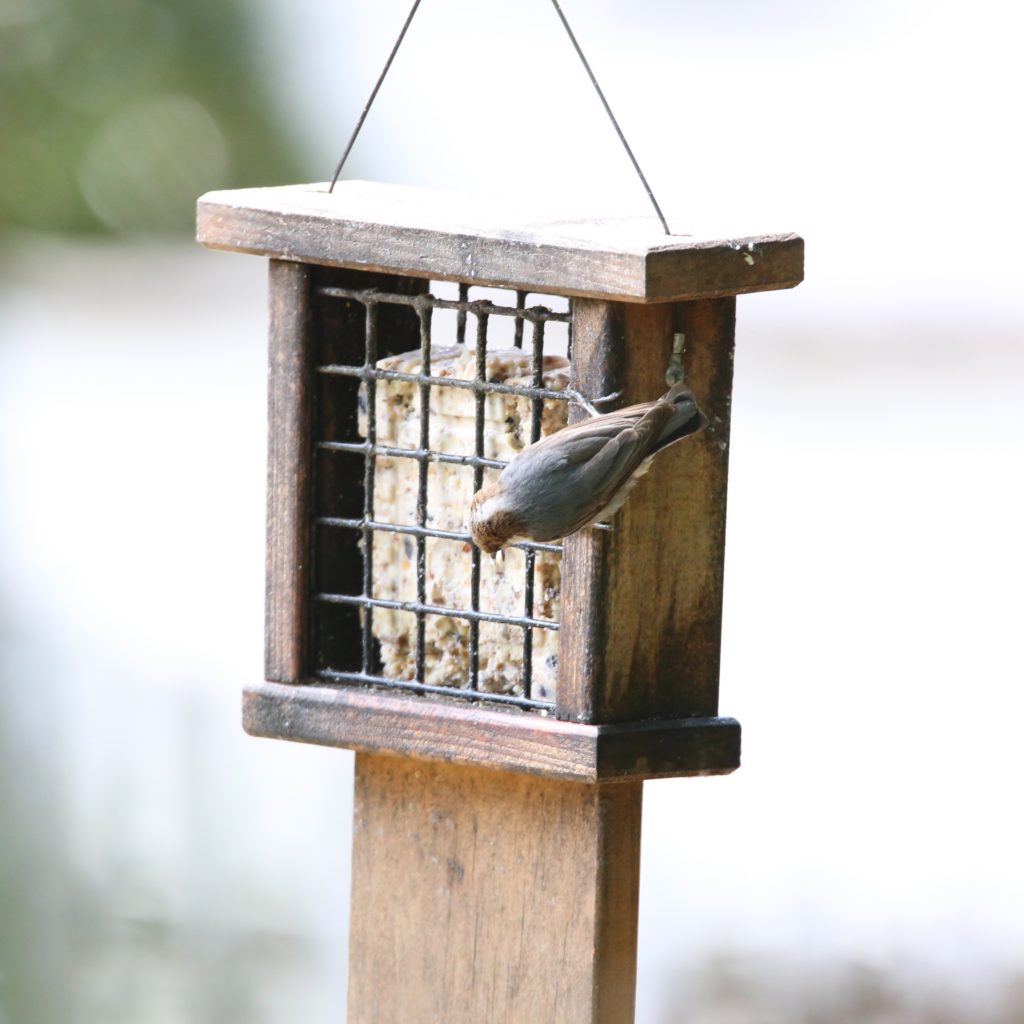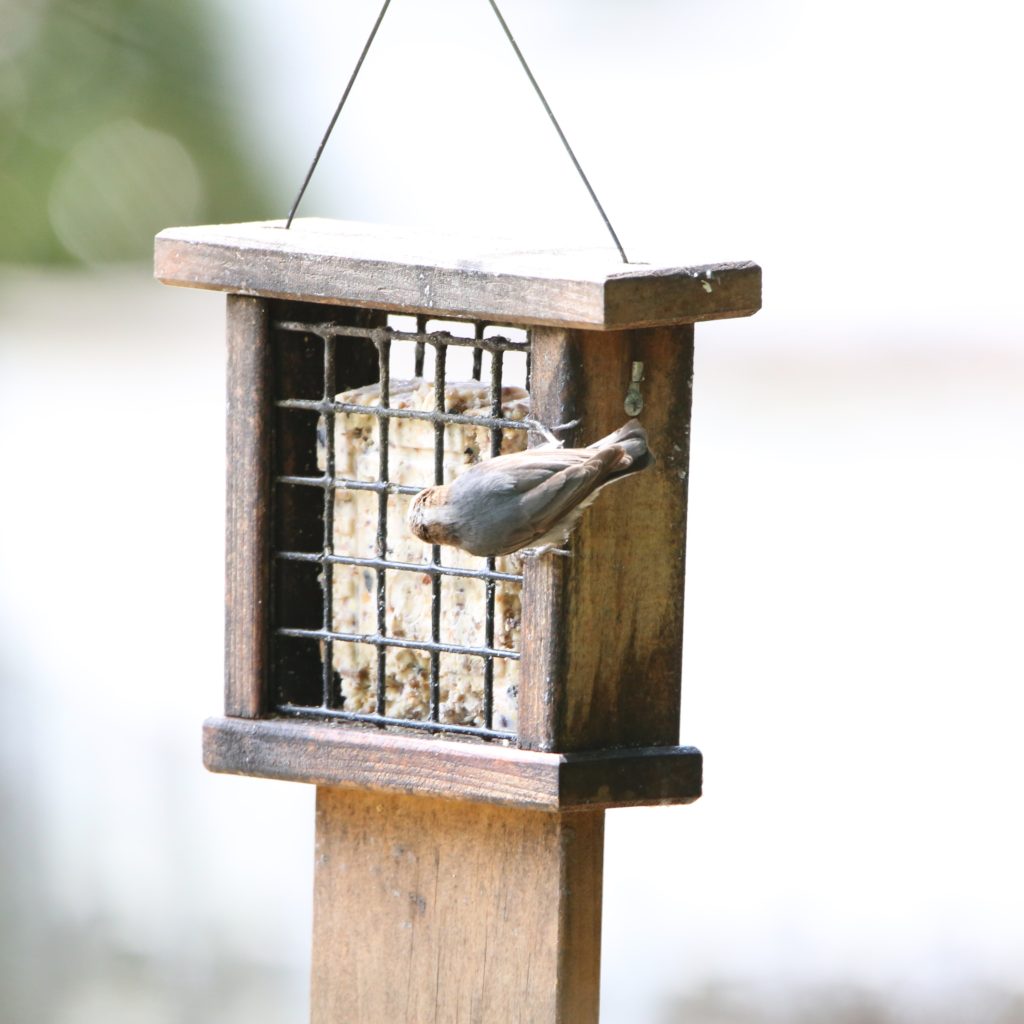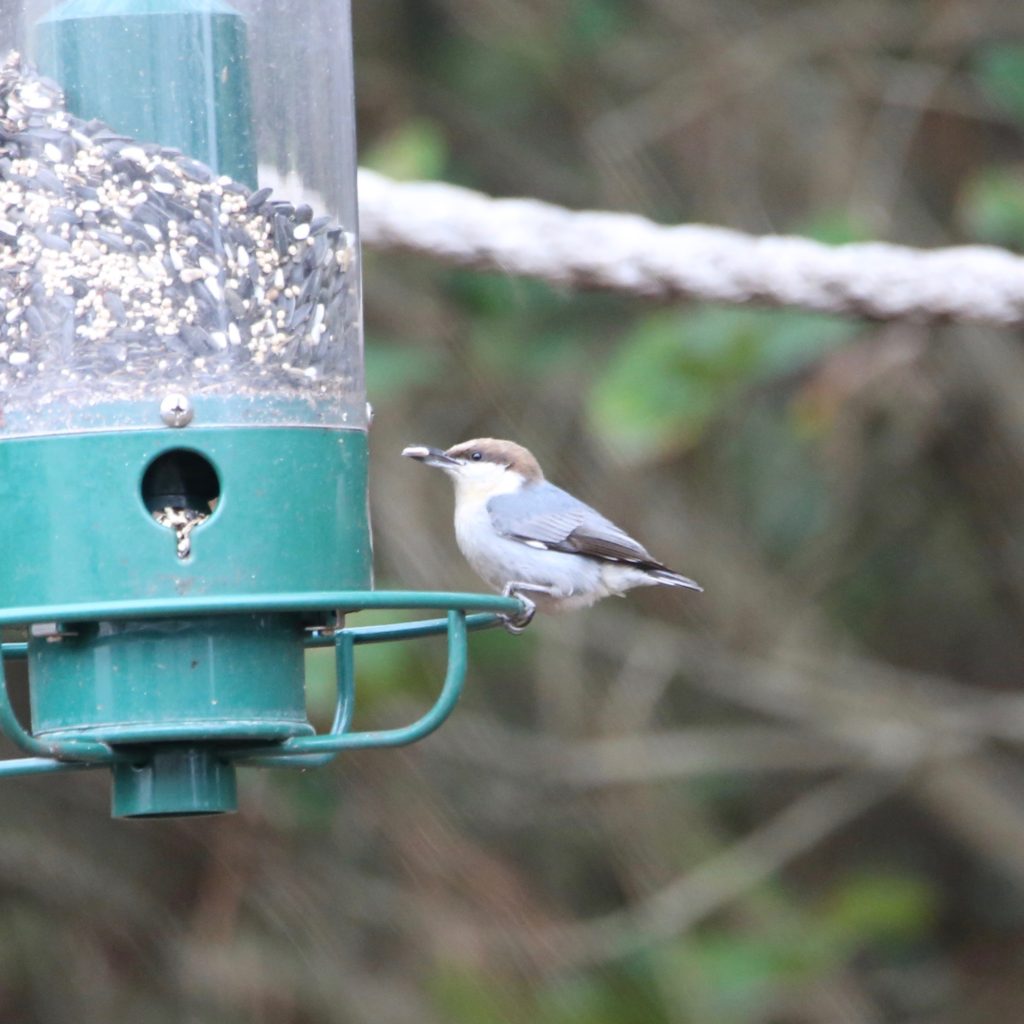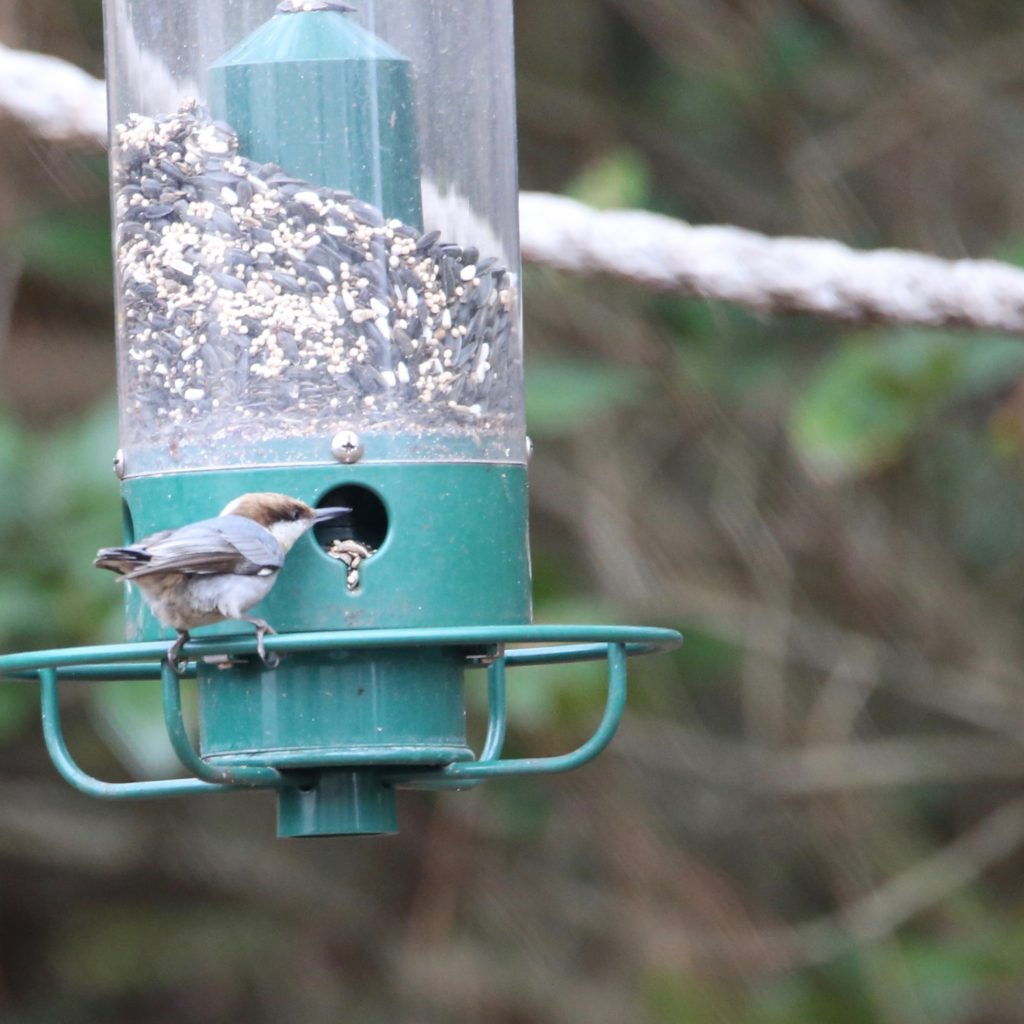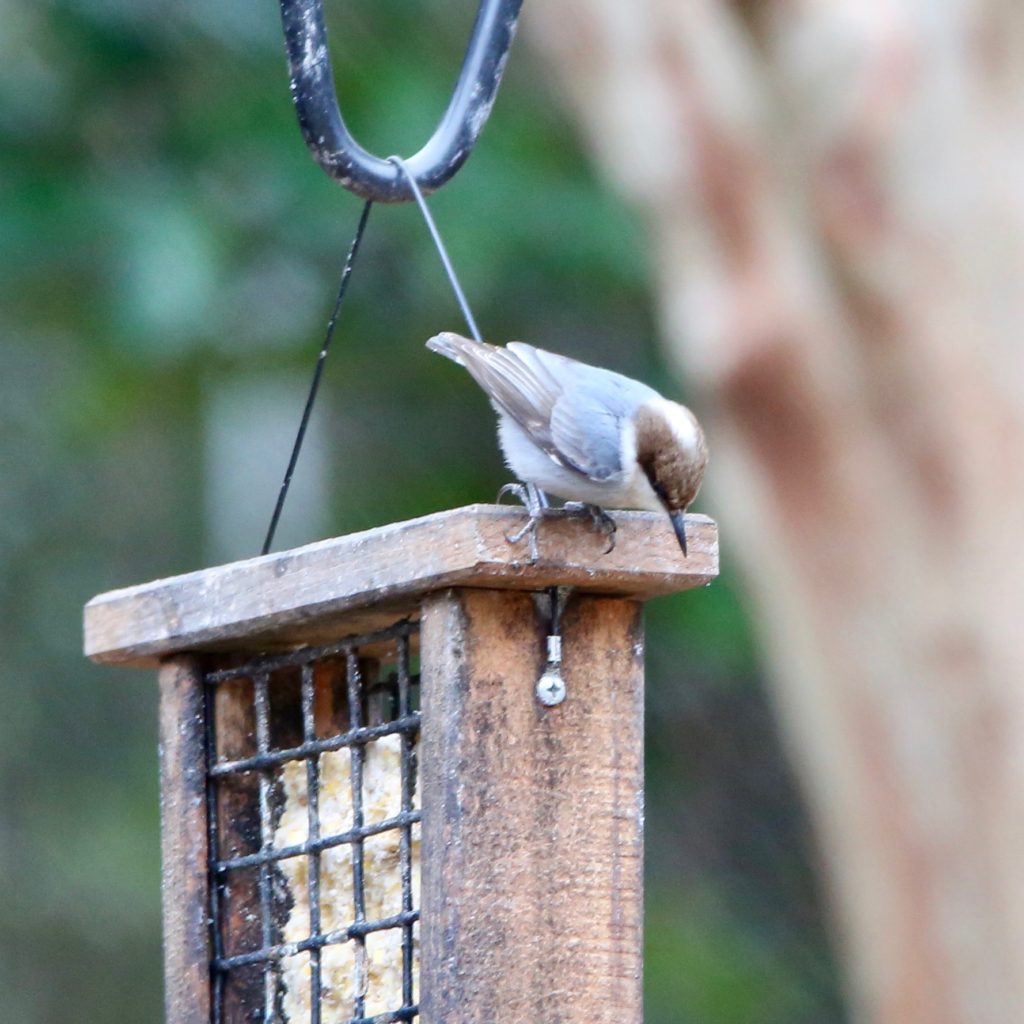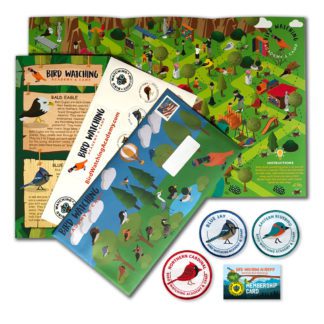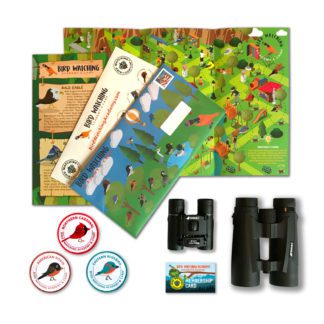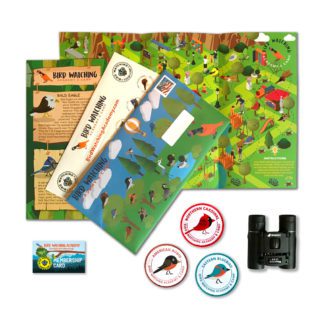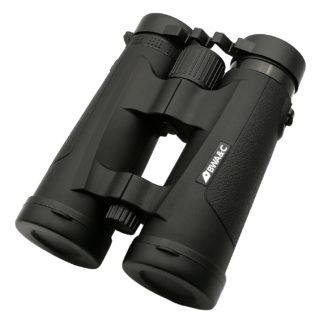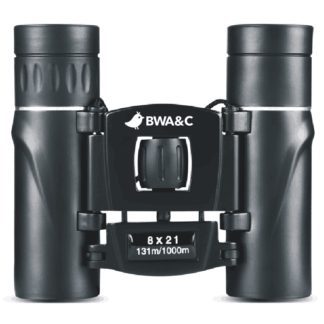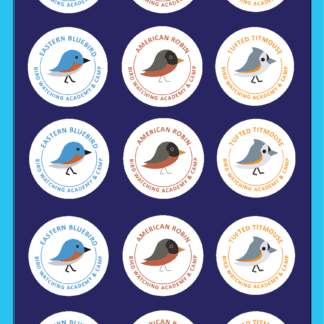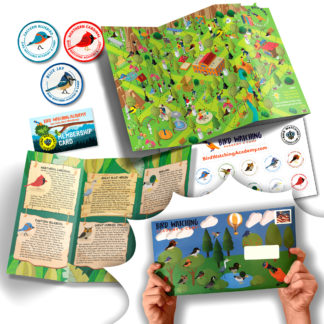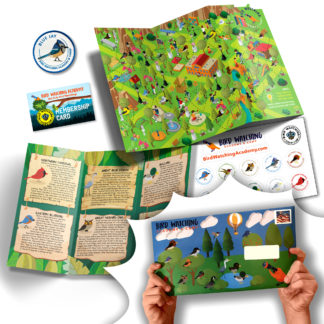
Brown-headed Nuthatch
A Brown-headed Nuthatch is a fun bird to see while bird watching. Below are some tips to help you identify Brown-headed Nuthatches. We have also put together a list of fun Brown-headed Nuthatch t-shirts, Brown-headed Nuthatch bird patches, birdhouses, bird feeders, binoculars, stickers, and other fun bird-watching items.
About Brown-headed Nuthatches
These small nuthatches are common in southeastern pine forests. They are noisy and often travel in groups. In fact, you can hear them before you can see them. These amazing songbirds climb pine trees with the precision of a rock climber, clinging on tree stems with their strong feet. Some of their distinctive characteristics include:
Description and Identification
Brown-headed Nuthatches are the smallest Nuthatch in North America along with Pygmy Nuthatches. They are extremely small-bodied with a length of 3.9 – 4.3 inches and bear a compact appearance. They appear round due to their short tail, legs, and neck; their chisel-like bills also seem too big for their bodies and provide a stark visual contrast to the rest of them. There is very little sexual dimorphism among the species with the males and females
being of the same size and having similar colorations. They have white plumages below and are gray above with brown heads. A small white spot is visible on the backs of their heads, along with small white spots in their tails that only become visible in flight. The brown in their heads resemble a cap that gives way to a narrow black eyeliner and buff white cheeks, chin, and belly. Their bluish-gray wings span between 6.3 – 7.1 inches approximately.
Brown-headed Nuthatch Color Pattern
Brown-headed Nuthatches have white underparts and gray upperparts. Their head is brown and has a brown cap. They have dark eye rings and a white face. Their legs and feet are black. The tail has a pattern of white spots that can be seen in flight.
Brown-headed Nuthatch Size
These tiny nuthatches appear round and compact. They have short legs, wings, and necks. The chisel-shaped bill makes it seem too big for the small bird.
The relative size for both sexes
- Length range: 3.9-4.3 in (10-11 cm)
- Weight: 0.3 oz (10 g)
- Wingspan range: 6.3-7.1 in (16-18 cm)
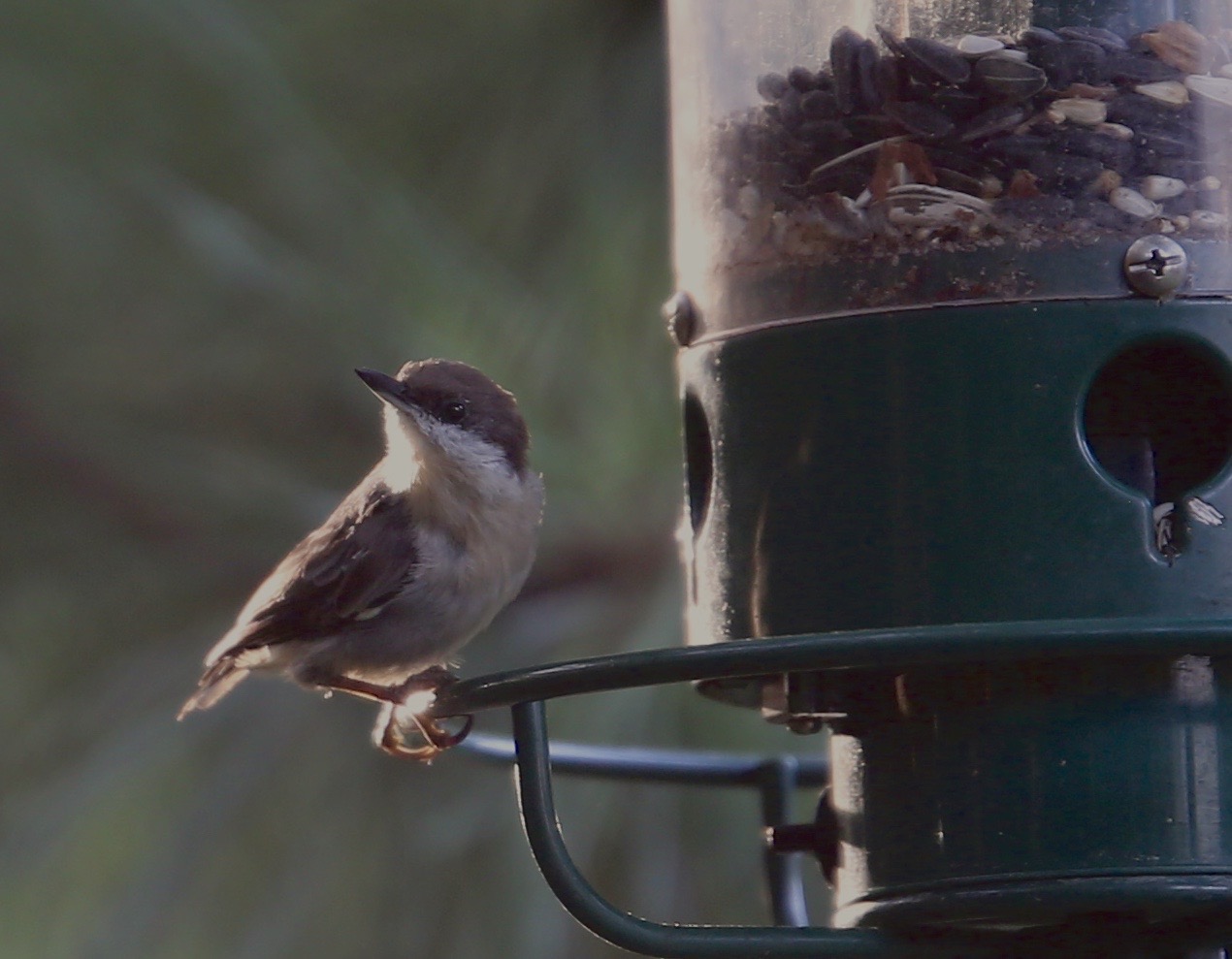
Brown-headed Nuthatch Behavior
They zigzag their way up and down pine trees, calling as they go. These nuthatches are social birds and fly in groups. They make weak, short flights covering a short distance, with rapid wing beats. They forage on trunks of pine trees. Males forage nearer the ground as compared to the females that forage on slightly higher ground.
What Brown-headed Nuthatch Eat
Brown-headed Nuthatches are insectivores that primarily feed on spiders and bark-dwelling
cockroaches, beetle larvae, and egg cases. These birds are known for their use of tools to
dig for insects. They have been regularly observed using small chips of bark, small twigs,
and pine needles held in their beaks to pry away flakes of tree bark to eat the insects hidden
below. This marks them very unique from most other bird species. They scour tree trunks,
branches, twigs, and pine needle clusters for insects and generally consume them all year
long. In the colder months, they consume pine seeds when food sources become scarce.
The Brown-headed Nuthatch diet mostly comprises insects and seeds. They are heavy feeders of spiders, cockroaches, and beetle larvae in the summer and seeds in the winter. They sometimes store seeds in bark crevices.
Where Brown-headed Nuthatches Live
These birds are only found in the South-eastern pine forests of the United States throughout
the year. They are commonly found in open, mature stands of loblolly, shortleaf, longleaf,
and slash pine. They generally opt for standing dead trees for nesting and thus have settled
in habitats that have evolved with frequent, mild fires that keep the understories open. They
also occasionally occur in mixed pine-hardwood forests but are relatively less numerous
than in mature pine forests.
Their all-year-round home is in the Southeastern pine forests. Nuthatches Frequent areas with stands of longleaf, shortleaf, and slash pine. They sometimes frequent mixed pine-hardwood forests. Their nest site is usually 5 ft. above the ground. The nest is made up of wings, hair, grass, and feathers.
Range and Migration
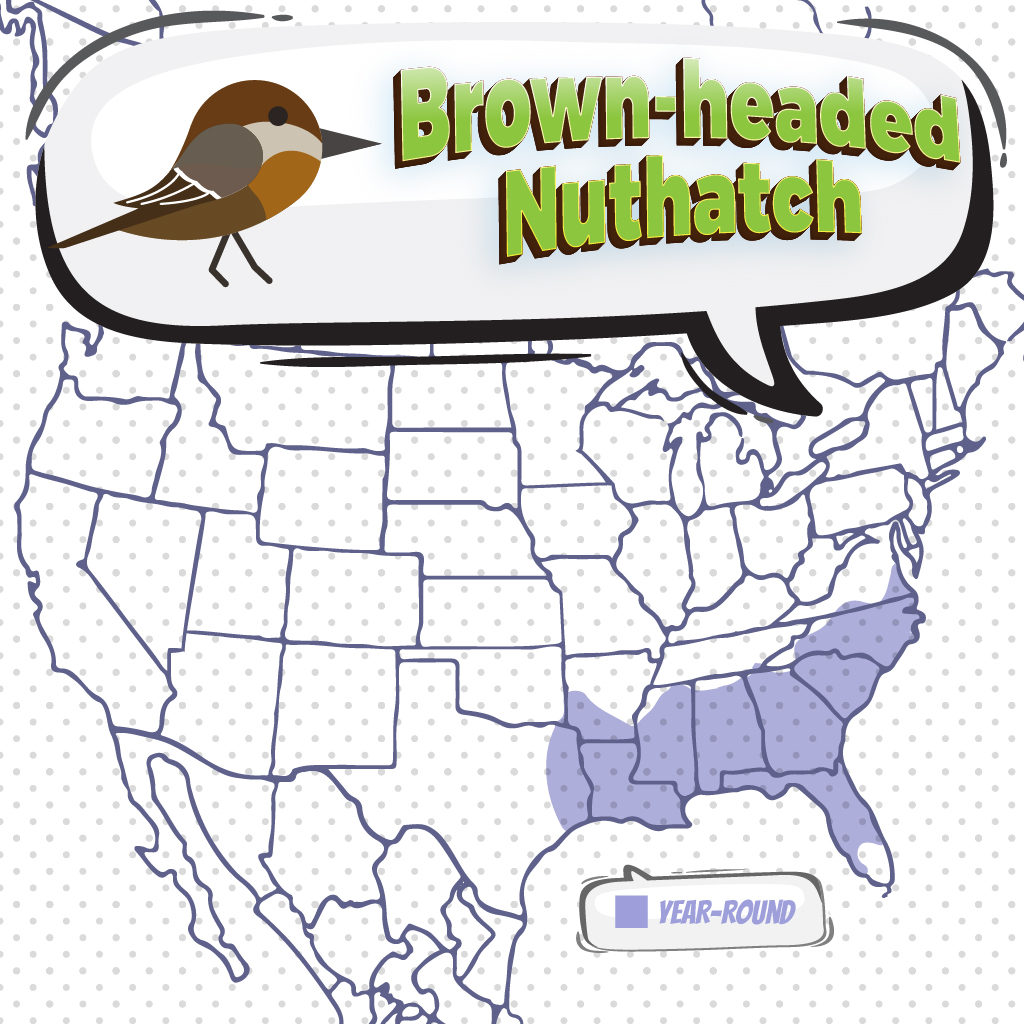
Brown-headed Nuthatches are small songbirds found in the southernmost Atlantic coast of
the United States along with some regions in the Bahamas. These birds are found
throughout pine forests in the south-eastern United States and are known for their use of
tools to dig for insects and for their complex social behaviors. Their numbers have dropped
over the recent years and they might be the least numerous Nuthatch in North America due
to habitat loss. They are resident birds of their breeding grounds and do not migrate but are
often seen joining other foraging flocks during the winter – including chickadees,
woodpeckers, and Pine Warblers.
Brown-headed Nuthatch Lifecycle
The female Brown-headed Nuthatch usually lays 4-6 eggs and incubates them for 14 days. The male feeds the female during the incubating period. After hatching, both parents feed the young ones. The nestlings leave the nest after 18-19 days. their lifespan is 8 years in the wild.
Brown-headed Nuthatch Nesting
Nesting sites are selected by the males in dead or decaying trees but may sometimes be
selected in existing nuthatch or woodpecker holes, nest boxes, fence posts, and telephone
poles. Their selected sites can be as high as 88 feet above the ground. These nests are
generally made by both sexes by pecking at the surface of decaying trees to excavate a
secure cavity within the bark. Once the cavity is completed, they line it with feathers, cotton,
pine seed wings, and bark strips to incubate the nest. The entrance to the nest is made to be
between 1 – 1.5 inches in diameter, presumably to ward off predators as only the parents
can squeeze into the nests.
Ornithology
Bird Watching Academy & Camp Subscription Boxes
At Bird Watching Academy & Camp we help kids, youth, and adults get excited and involved in bird watching. We have several monthly subscription boxes that you can subscribe to. Our monthly subscription boxes help kids, youth, and adults learn about birds, bird watching, and bird conservation.
Bird Watching Binoculars for Identifying Brown-headed Nuthatches
The most common types of bird watching binoculars for viewing Brown-headed Nuthatches are 8×21 binoculars and 10×42 binoculars. Bird Watching Academy & Camp sells really nice 8×21 binoculars and 10×42 binoculars. You can view and purchase them here.
Brown-headed Nuthatch T-shirts
If you love the Brown-headed Nuthatch you should purchase a Bird Watching Academy & Camp T-shirt. To help support bird conservation we donate 10 percent to bird conservation activities.
Brown-headed Nuthatch Iron On Patches
Kids, Youth, and Adults love to collect our Bird Watching Academy & Camp iron on patches. Our bird watching patches help you keep track of the birds you have seen an identified. You can also display the patches on our Bird Watching Academy & Camp banners.
The Brown-headed Nuthatch is a great iron on patch to start your collection with. The patches are durable and can be sewn on or ironed on to just about anything.
Brown-headed Nuthatch Stickers
Stickers are a great way for you to display your love for bird watching and the Brown-headed Nuthatch. We sell a monthly subscription sticker pack. The sticker packs have 12 bird stickers. These sticker packs will help your kids learn new birds every month.
Bird Feeders For Brown-headed Nuthatch
There are many types of bird feeders. Here are our favorite bird feeders for your backyard. We use all of these bird feeders currently. Kids will have a great time watching birds eat at these bird feeders. Using this collection of bird feeders will provide a wide variety and many types of birds.
Best Bird Houses for Brown-headed Nuthatch
There are many types of bird houses. Building a bird house is always fun but can be frustrating. These 4 bird houses have become our favorites. Getting a bird house for kids to watch birds grow is always fun. We spent a little extra money on these bird houses but they have been worth the higher price and look great.



